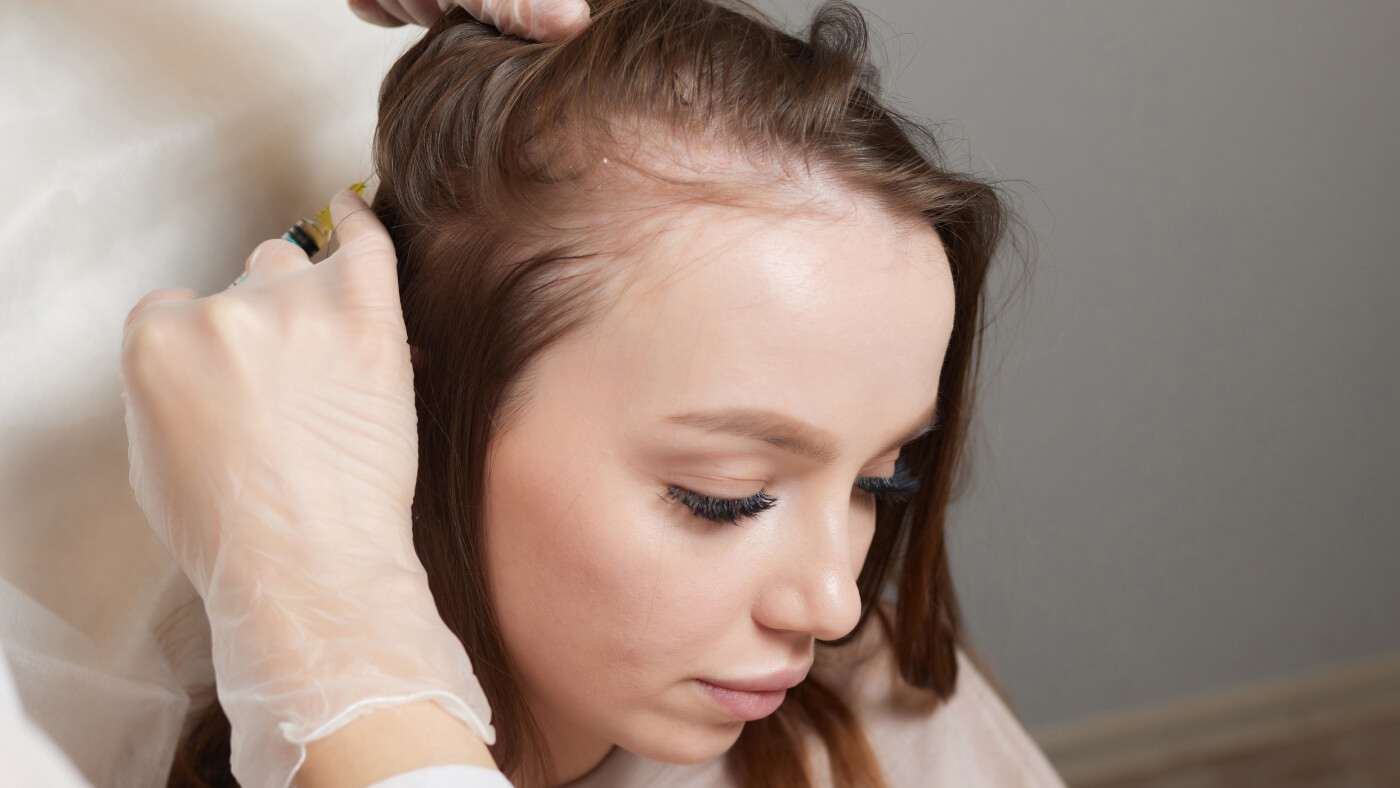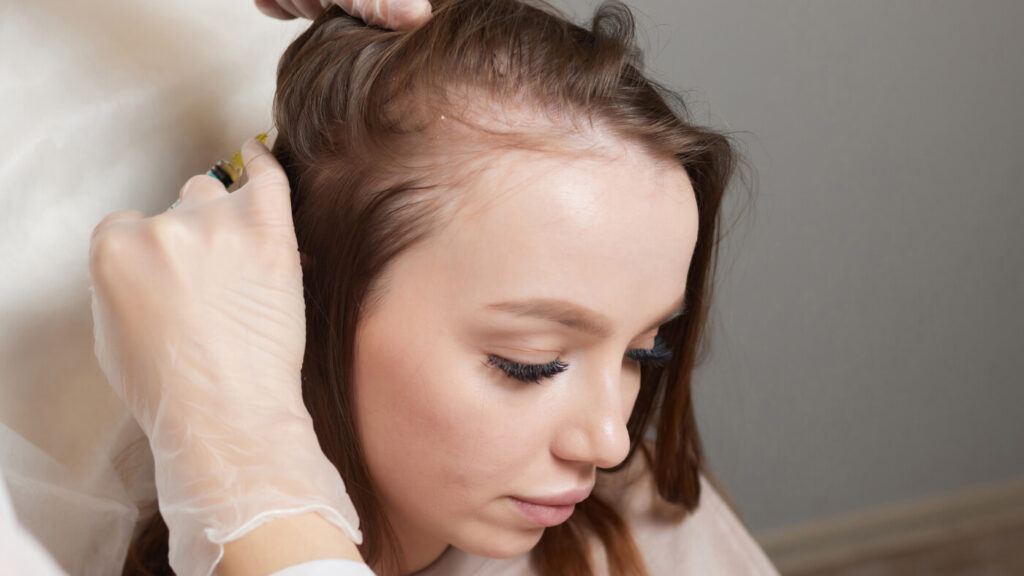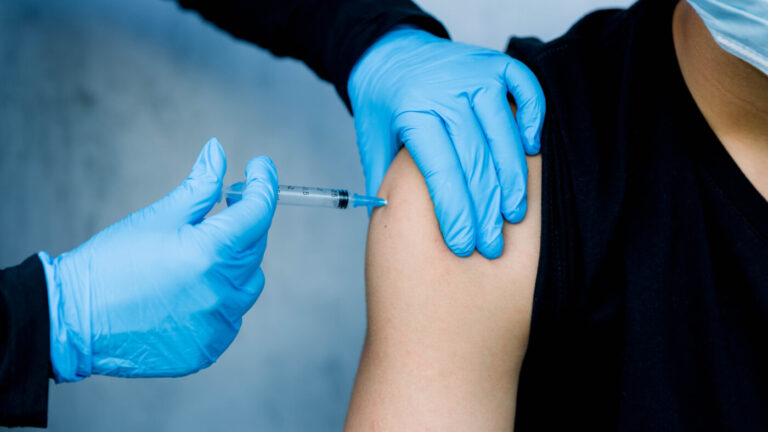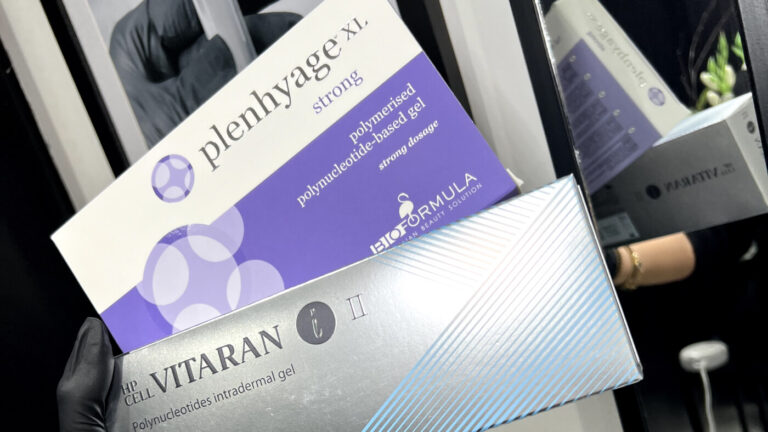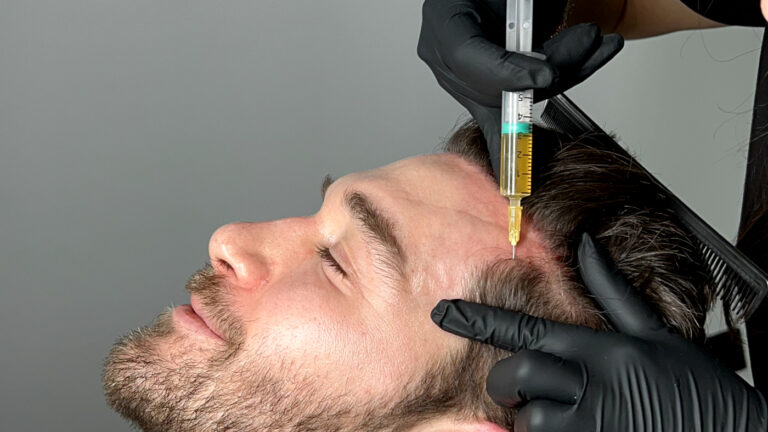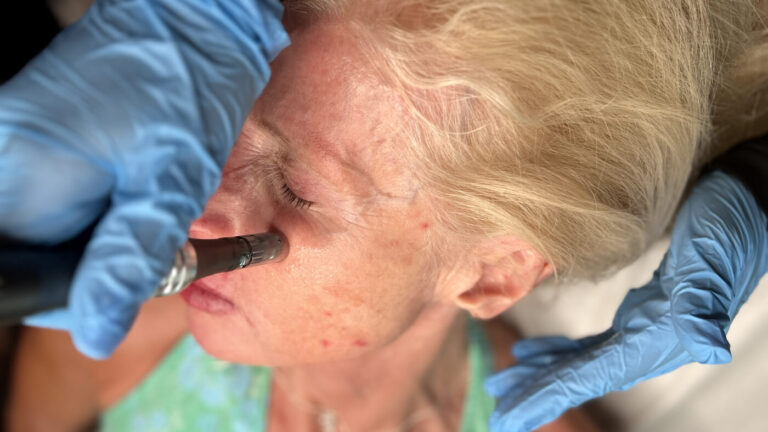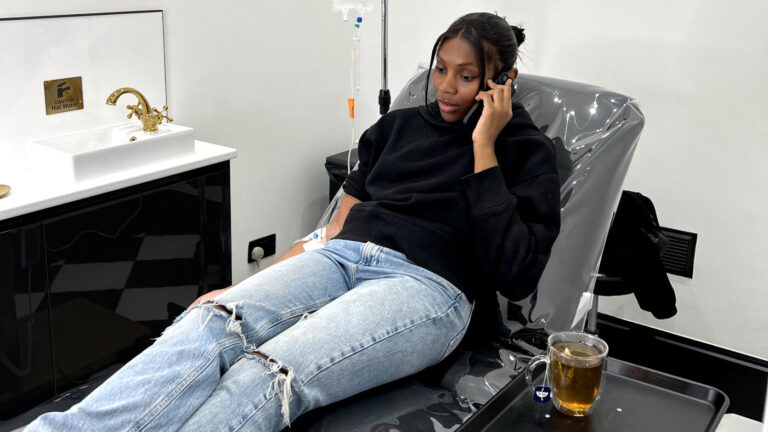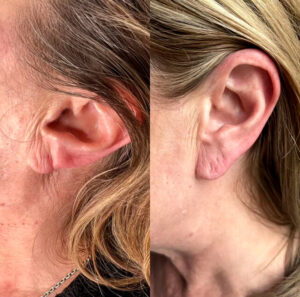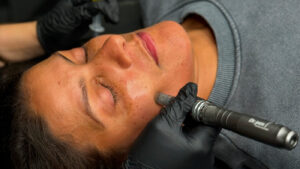Types of Postpartum Hair Loss
Early Postpartum Hair Loss
This occurs within the first 3-6 months after delivery, with hair shedding noticeably increasing but gradually slowing down
Persistent Postpartum Hair Loss
If hair loss continues beyond 6 months, it may require further investigation and potentially different management strategies.
Factors Contributing to Postpartum Hair Loss
Hormonal Changes
The dramatic shifts in hormones after childbirth are the primary cause of postpartum hair loss.
Nutritional Deficiencies
Lack of vital nutrients post-pregnancy can exacerbate hair shedding.
Stress
The physical and emotional stress associated with new motherhood can contribute to hair loss.
Genetic Predisposition
Some women may be genetically predisposed to more significant postpartum hair shedding.
Effective Strategies to Manage Postpartum Hair Loss
Balanced Diet
Consuming a diet rich in vitamins and minerals supports hair growth and overall health.
Hair Care Regimen
Gentle handling of hair, and avoiding over-styling and harsh chemicals, can help manage hair loss.
Supplements
Vitamins such as Biotin and Zinc can be beneficial in promoting hair growth and recovery.
Scalp Massage
Regular scalp massages can stimulate blood circulation and hair follicles, enhancing hair growth.
Adequate Hydration
Staying hydrated is crucial for maintaining overall health, including hair health.
Services Offered at Faces By Bae for Treating Postpartum Hair Loss
At Faces By Bae, we understand the challenges of postpartum hair loss and offer a variety of treatments tailored to rejuvenate your hair.
Treatments available at Faces By Bae to help with Postpartum Hair Loss
Frequently Asked Questions
Postpartum hair loss is mainly caused by hormonal changes after childbirth, with other factors like nutrition and stress playing secondary roles.
Yes, a well-balanced diet rich in essential nutrients can help mitigate hair loss and promote healthy hair regrowth.
Typically, postpartum hair loss peaks around three months after birth and gradually subsides by six to twelve months.
Our treatments at Faces By Bae are designed to be gentle and effective, with minimal risks. Any concerns can be discussed during your consultation.

